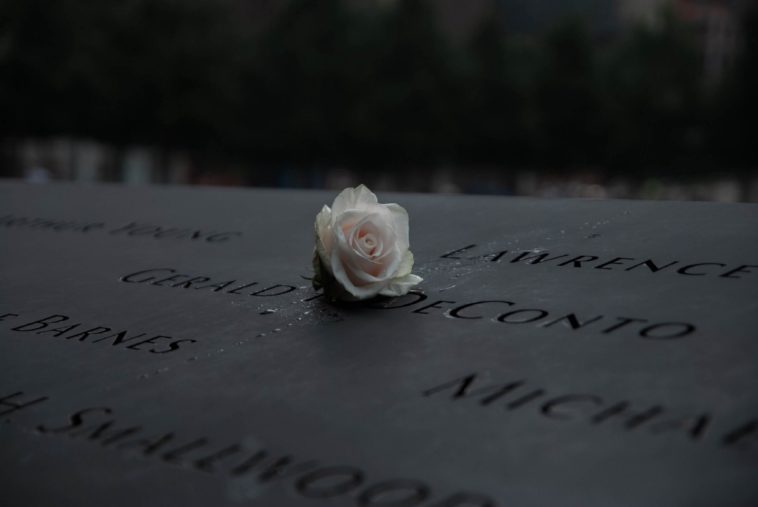h2>Dating : Depression from losing a loved one.
I used to consider it excessive, and then my father died.
I remember myself as a little girl sitting on my knees beside the bed and praying — Oh God, please make for Dad to come home safe! — every time my father would leave for a work trip or something like that. That same little girl would pray to God if she could have his pain every time her father felt sick from his failing kidneys.
That is how much I loved Dad, but to my sadness, he died a year ago, seven months before we could celebrate my 35th birthday. Oh, how much he loved celebrating life.
I remember watching movies and the main character saying: — my parent died, and I felt lost… — or some other phrase to reveal their state of deep despair or even depression.
I have always considered myself a person mentally strong and capable of managing my mind during difficult moments occurring in my life. Therefore, depressions suffered from others for losing their loved ones appeared to me like a weakness of theirs to cope with what naturally happens in life. I considered all of that as a hard time in life one has to deal with at some point. After all, it’s the logic that should manage the pain and not the other way around. But on the other hand, and in some absurd way, I never thought my father would ever die, at least not until I was ready for him to leave me forever.
As they say, the first phase of grief consists of denial, numbness, and shock, and I felt them all as I went through as well. Looking back to those days now, I feel grateful and relieved for not having dealt in person with the funeral arrangements, notifying relatives, and other stuff alike.
Before passing away, my father suffered kidney failure, which among many things, meant going in and out of hospitals for the needed treatments and therapies. By the fourth and last time my father got hospitalized, I thought he would get back home, just as the other times before. I knew his conditions had gotten worse, but as worse as it got, I still wasn’t allowing myself to understand nor believe that it was the end for him. In his last moments of consciousness, I left him lying in that hospital bed as the nurses kept asking me to leave. I did not realize it. I left my father that night thinking that I would get back the next morning to see him feeling better. The next day, as I was getting ready to go to the hospital, my brother called and told me that Dad had a seizure overnight and was breathing through the tubes. I felt desperate for not having stayed with him longer the other night. Yet, I hoped that he would get better as I was still not getting it.
On my way to the hospital, my aunt called, saying that she had shortly left my dad’s room, and among other words, I heard her mention “morgue”. In my mind, I thought — what is this crazy lady saying? Is Dad dying?
As my father lost his consciousness, from that point forward, everyone around me started talking about death, even the doctors, but I still could not accept it or admit myself to the circumstances.
I felt numb, was shocked, and I denied it. I couldn’t accept it, as I was not ready.
My father went into a coma for the next five days. I visited him every day and stayed close to him for those minutes we were allowed to be next to him. I remember staring at the screen of the apparatus, from where the tubes holding him alive came out, trying to read the numbers on the screen as if I could detect something that could give meaning to my naive hope for my father could get better. Yes, I wanted to be the genius who proved the doctors to be mistaken! As I stared at the monitor, I resented myself for not understanding a damn thing showed in the monitor other than the heartbeat beep. I kept my eyes at the heartbeat indicator that was telling me my father was still alive. Every day, I asked the nurses if my father could feel anything while I desperately hoped they would confirm the opposite. The idea that Dad could understand the fact that he was leaving us was hurting me. Even though the nurses kept affirming that my father was unconscious, something inside me believed that maybe it wasn’t entirely true. So, one day I would open Youtube, search for the “New Year’s Concert — Vienna Philharmonic” and put the phone next to my dad’s ear. He adored listening to classical music.
As the days went by, my father’s heart was the last to fail and, so he passed away, and all the while still, I was not ready.
Having persistent thoughts of what one could have done more or differently to prevent death or loss is another known griefing phase. I kept going through every moment of my father’s illness, trying to evaluate every step of it while considering if someone or some process addressed differently could have prevented his death.
While facing my father’s loss, I felt like my whole childhood squeezed, like a compressing accordion, in my mind. Strangely, my childhood memories turned into short intervals, into a concentrate. The 34 years of life, suddenly, felt shorter.
I recalled memories of the little me resting in bed while daddy narrates my favorite tale every Sunday morning. He was a literature teacher, so he had a charming way of telling stories.
I recalled him bringing me water in the middle of the night when I asked — Daddy, I want water!
I recalled going to schools far from home because daddy wanted me to have the best teachers in town.
I recalled him pushing me to read books or learn a foreign language, saying that they widen my mind’s horizon. I never thought of it before, while enjoying a song in a foreign language or even speaking it, how much he had sacrificed in his life for me to learn and master those languages.
While going through reminiscence, that little grown girl felt like a tree standing rootless.
As my father was gone, I missed him dearly and felt pain in my heart. As I played with my kids, sometimes I would lock myself in the bathroom and cry my pain out. I missed him hard. I wanted him back but what I wanted was the stronger him. The man who taught me how to ride the bike, or the man who would seek the best for me, and not that weak man laying in the hospital bed, making me feel stupid and powerless for not being able to help him.
I felt vulnerable and scared, even toward my husband at times, as I couldn’t find in anyone the comparable support that Dad had offered me. I didn’t have the option to be a little girl anymore, so I had to grow up.
I felt death as it became real, and the concept that a loved one might cease to exist suddenly was defeating my logic. The pain was winning. It was not just the pain of losing Dad I was frightened of anymore, but to that kind of pain it inflicts and the idea that it can happen anytime and anywhere and to every one of us. I was afraid even to drive with my kids, as I was frightened of anything that could bring me close to feel that kind of pain. I was on the edge of depression, and I needed to find my cold logic.
When writing this article, as I was thinking of finding the right words to express my feelings, I received an email from Medium where I found a quotation that hit me immediately — “life is impermanence”. Besides being a caring and loving parent, above all that Dad was an exceptional man. Everyone who knew him respected and loved him, as he helped many people throughout his life and career. When the topic of him dying would come up, he would always say — “oh, just through me in a grave somewhere and get it over with”. He was a simple man. He couldn’t care less about rewards or big words when being said about him (and there were big speeches given about him at the funeral), or even having a fancy funeral… He just wanted to live life to its fullest!
It may be because I am my father’s daughter, but it was the desire to live that made me find the way out of pain. I acknowledged and accepted both positive and negative feelings. I let myself cry and talk with my husband and best friends about my feelings. I cry at times and then remind myself of how much I want to live.
Never before, like in this first year of his absence, I felt that life is short, so I need to make the best out of it.




